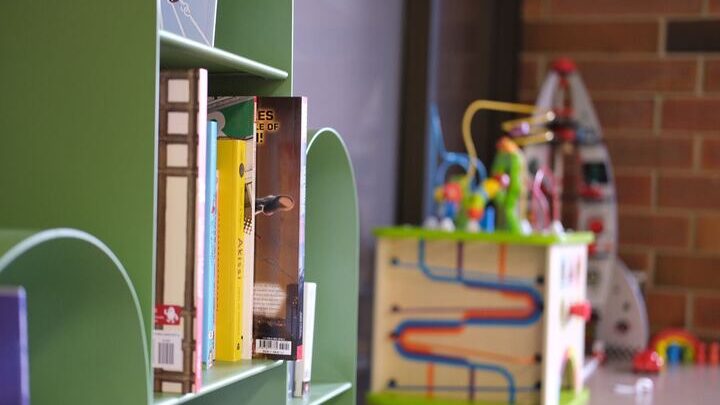 Macy Wong
Macy WongLately, there has been increased discussion on campus about student parents at the University of Alberta, and how we can help them. Most notably is the opening of the Family Corner in Rutherford Library.
The Family Corner resulted from many people working together to finally acknowledge that some students on campus have children. This is a welcome improvement compared to what we had before — a secret breastfeeding room in Triffo Hall. I sat on the working group for the project, and I am happy it finally came to fruition. However, while a massive success for parents, it doesn’t come close to breaking down other barriers they face in university.
For the past two and a half years, I have been studying the lives of student-mothers at the U of A. I interviewed participants from different backgrounds across each of the colleges. What I found is a flawed system — student parents are trying to balance their competing roles with little support. Student parents need more than a room to tackle their main challenges. Factors like rising tuition, accessing child care, and the unpredictability of child illness could — and often does — make school more difficult.
My research primarily focused on the effects of the COVID-19 pandemic and what we can learn from it to better support parents in university. I found that the closure of daycare facilities and schools caused mass interruptions in student-parent’s lives. This could set the completion of their degrees back years, which highlighted how vital accessible child care is. Many are still dealing with the effects of the closures on their academic goals today. However, the pandemic also showed what we can do to help these student-parents.
For some, access to online classes, deadline forgiveness, and swift program extensions made university easier. However, the university took away this brief increase in flexibility to quickly get back to campus and return to “normal.” Unfortunately, these are the kinds of supports that need to stay in place in order for students who parent to have the resources they need to succeed.
Participants told me that the university stopped giving program extensions for COVID-19-related reasons, despite the on-going effects of the virus.
The hesitancy to give extensions is likely due to suggestions outlined in the United Conservative Party‘s (UCP) “MacKinnon Report.” The report argued that public funding should be tied to graduation rate, claiming that students were taking too long to finish. This report is especially threatening to the U of A since it recently fell victim to millions of dollars in funding slashes at the hands of the provincial government.
As for online classes? In 2021, there was a push to get a vast majority of classes back in-person. Now, there is little room for online accommodations. On top of this, accessing support has become challenging because of university restructuring wreaking havoc on student life. As reported by The Gateway and my own findings, unclear academic guidance has confused students when they need help regarding their programs. If they do manage to find someone, it can take weeks to receive answers.
The waitlists for university daycares remain years long — if you can even afford them. In many cases, student-parents compete with faculty and staff for spots. Parents are still dealing with the effects of the pandemic, fighting with the university for extensions to finish their degrees after years-long interruptions. We are experiencing an unprecedented amount of children’s illnesses in the province. This leaves student parents to battle with unpredictable disruptions to their work and ability to attend classes.
At the same time, tuition continues to increase every year alongside the cost-of-living crisis. The Campus Food Bank (CFB) cannot keep up with demand. As well, the CFB lists diapers and baby formula as two of their most needed non-perishable items. Graduate student funding is stagnant and hardly covers the cost of raising a child while in school.
Reflected in the 2022-2023 Faculty of Graduate Studies and Research (FGSR) enrolment data, the data shows alarming examples of inequality in graduate education, an older student population more likely to have children. Overwhelmingly concentrated in course-based programs at a staggering 62 per cent, women make up most of the graduate student body. Meanwhile, most doctoral students are men. My research shows that this is in part because course-based programs are more likely to have flexible online options. This could allow women, who often take on the majority of child-care responsibilities, to attend classes more easily. What if we applied this to all programs, including the more prestigious doctoral ones?
If we truly cannot lower tuition, build more daycares, or increase the amount of grants for student parents, the pandemic showed us we can give student parents the support they need. More flexibility through online classes, hybrid options, and program extensions goes a long way to help students who parent. These changes will ease the challenges that arise from the unpredictability of parenting.
I am thankful for a space that allows parents to bring their children to campus more easily. However, the biggest struggle student-parents face is the university forcing them to perform their duelling roles at the same time. It is important that we remember that.




